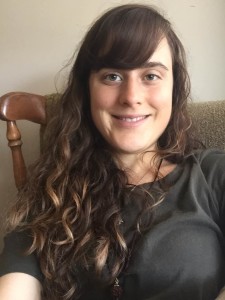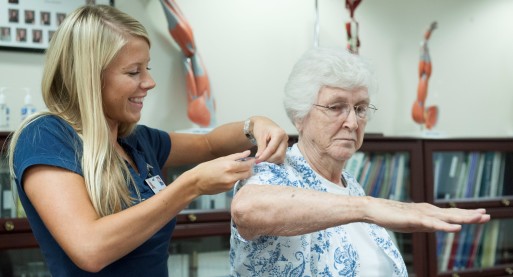Today is part one of a two part interview with Suzanne Roche, an occupational therapist located in Northern California. Suzanne currently works in a nursing home, and she was kind enough to sit down with SevenPonds to explain her experience as an occupational therapist and how important occupational therapy is to end of life care.

Credit: Suzanne Roche
Augusta: Thank you so much for agreeing to do this interview with SevenPonds! For starters, just to provide our readers with some basic info, what exactly is occupational therapy?
Suzanne: Yes, so, occupational therapy is a broad discipline. Basically, what we do for the people that we serve is help them with whatever is meaningful and purposeful for their lives. It can be in a variety of settings — work, school, a nursing home or hospital. I currently work in a nursing home, and we work with people who have had hip or knee replacements, people who are dealing with Alzheimer’s, dementia, strokes, etc. Within that small population of people, I’m helping individuals with daily life skills — from dressing to bathing. I’m helping them relearn those skills so they can go home and live a more meaningful and purposeful life.
Augusta: That’s really wonderful. Have you always worked in a nursing home?
Suzanne: Well, I’ve been out of school for two years. Since graduation, I moved up here (Northern California) and have been working at a nursing home for the last two years.
Augusta: On that note, what does becoming an occupational therapist entail?
Suzanne: You get your undergraduate degree, then you go on to get your Master’s in occupational therapy. And then, there are so many areas of occupational therapy — it’s really awesome. You can go and get a specialty in, for example, hands, or pediatrics or neuro. There are so many different disciplines and areas.

Credit: usi.edu
Augusta: Oh wow, I didn’t realize there were so many options!
Suzanne: They’re endless!
Augusta: What made you want to do this in the first place? Have you always wanted to be an occupational therapist?
Suzanne: Yeah, I did! What brought it about was actually that my grandmother had Alzheimer’s disease and was in a nursing home. We would go and visit her, and that was the first time I learned about what an occupational therapist was and what they do, because I saw them working with my grandmother. I saw the therapist really engaging with my grandmother and treating her just like I wanted her to be treated. She (the occupational therapist) had the time and energy to offer my grandmother, unlike the doctors or nurses who are just in and out. She was really connecting with my grandmother. I think I was maybe 16 at the time and just knew, “Yep, that’s what I want to do.” So I pretty much knew I wanted to be an occupational therapist since the time I graduated high school.
Augusta: What does your usual day entail as an occupational therapist? What does a regular day look like for you?
Suzanne: In a typical day, I’ll have anywhere from six to nine patients and will see them anywhere from 30 to 75 minutes each. Basically, I go in to the nursing home and see what patients are ready, and we go through any bathing or dressing. And then if anyone needs feeding, I’ll do lunch with them. Then it will go into exercise — strengthening, balance, endurance and things like that.
Be sure to check back next week for part two of our interview with Suzanne!

 What Is Occupational Therapy and Its Benefits at End of Life? An Interview with Suzanne Roche, Part One
What Is Occupational Therapy and Its Benefits at End of Life? An Interview with Suzanne Roche, Part One


 Funeral Home Owner Chris Johnson Spending Halloween in Jail
Funeral Home Owner Chris Johnson Spending Halloween in Jail
 Our Monthly Tip: Toast a Loved One with a Personalized Glass
Our Monthly Tip: Toast a Loved One with a Personalized Glass
 My Cousin’s Death Taught Me the Meaning of Life
My Cousin’s Death Taught Me the Meaning of Life















This was a great interview, I also didn’t realize that there were so many options for occupational therapy. It seems to me that it makes choosing a venue where you really get along with the types of people there much easier. After all, some people may prefer working with the elderly while some occupational therapists might want to work with a younger group.
Report this comment
>In a typical day, I’ll have anywhere from six to nine patients and will see them anywhere from 30 to 75 minutes each
This is why I love occupational therapy. Instead of seeing a hundred patients for only a few minutes each every day like a normal doctor does, you actually get to spend a significant amount of 1-on-1 time with each patient. It’s hugely beneficial not just for the patient but for the therapist as well.
Report this comment
Hi Kelly,
Thanks for sharing with us. It’s good for our readers to hear thoughts from the experts like you!
Suzette
Report this comment